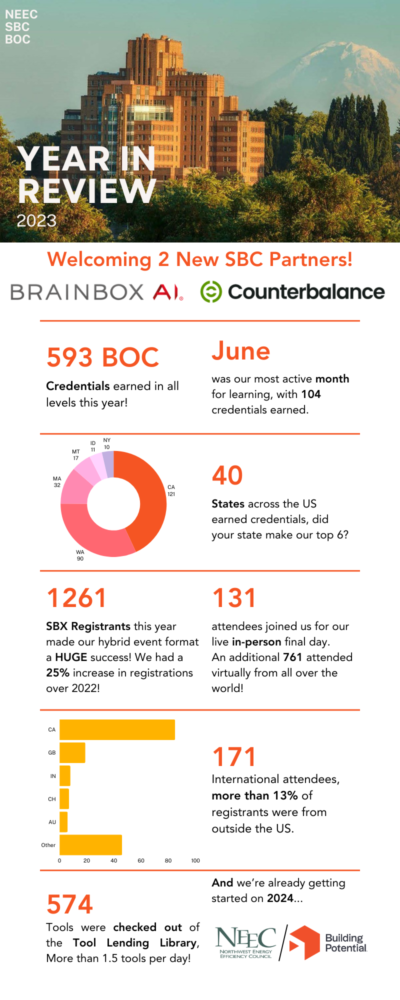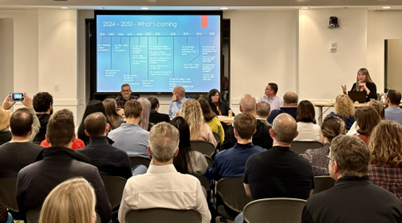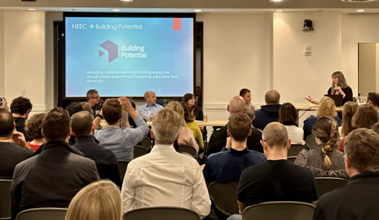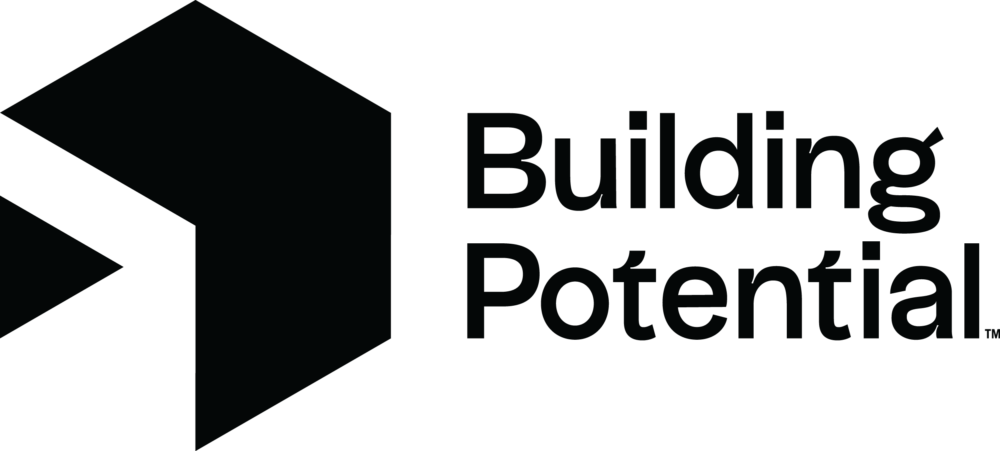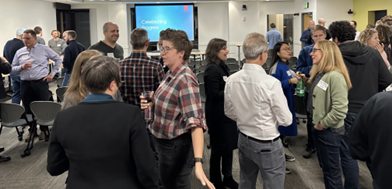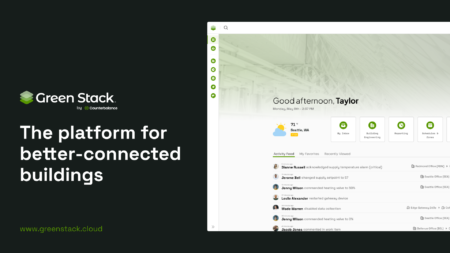The Northwest Energy Efficiency Council (NEEC) is excited to announce the organization’s official transition to Building Potential, the name shared at the member celebration will be the trade association’s new name.
As Building Potential makes this official transition, you will begin to see the new logo and name in predictable places. It will take a little time to fully transition over to the new name, as our branding on collateral, social media etc. is slowly replaced, however moving forward, the NEEC blog will be renamed “Building Potential News” and the website has been changed to www.buildingpotential.org.
Read on below for our official announcement.
FOR IMMEDIATE RELEASE
Northwest Energy Efficiency Council Transitions to Building Potential, A Leading Non-Profit Trade Association Shaping the Building Decarbonization Industry
Seattle, January 30, 2024 – The Northwest Energy Efficiency Council (NEEC) is thrilled to unveil its rebranding as “Building Potential,” marking a significant evolution in its role as a non-profit trade association. This strategic shift reflects the organization’s commitment to representing and advancing the industry that is transforming the built environment through energy efficiency, demand flexibility and other behind the meter resources, equipment and interventions.
In 2022, the organization announced a revamped mission and vision for the organization, one that aligns with the direction of the industry and its members and stakeholders: “We envision a world with net-zero carbon emissions by 2050, and our mission is to eliminate carbon emissions from building energy use through market-based thought leadership, education, and advocacy.”
As Building Potential, the organization assumes a leading position as a non-profit trade association, championing the collective efforts of industry stakeholders dedicated to reshaping the future of buildings. This rebranding signifies a broader and more inclusive focus on the diverse facets of building decarbonization, where buildings actively contribute to carbon reduction targets.
In this changing industry landscape, Building Potential will continue to serve as a unifying force for individuals, businesses, and organizations involved in the building efficiency, performance, and decarbonization industries to collaboratively work to transform our building stock. By fostering collaboration, education, and advocacy, the association aims to accelerate the adoption of innovative practices and technologies that enable buildings to play an active role in achieving societal sustainability goals.
“We are proud to embrace the identity of Building Potential as a non-profit trade association, reinforcing our dedication to uniting the industry and driving positive change,” said Perry England, Vice President at MacDonald Miller and President of the Building Potential Board of Directors. “Our role extends beyond a name change; it signifies a commitment to fostering collaboration and driving impactful advancements in managing operational carbon.”
“Energy Efficiency remains critical to the success of the clean energy transition. This name change and the expanded mission expand on this critical focus, highlighting that the mission has evolved beyond saving energy, to buildings that contribute to decarbonization, reliance, equity, and a transition to a distributed clean energy grid. Energy Efficiency is part of a broader market of demand flexibility that includes demand response, battery storage, onsite renewables, and electrification, as part of an integrated solution to enable buildings to be active participants in the energy transition,” said Matt Golden, Building Potential Board Member and Founder and Chief Executive Officer of Recurve.
“There is a lot of work to be done to transform our building stock and meet our local climate targets. Reframing our work is only the first step in our efforts here. I am excited to work with our current and new members to find innovative solutions and opportunities to support the building decarbonization industry,” said Poppy Storm, Building Potential Board Member and Director of Innovation for the 2050 Institute.
Building Potential will continue to serve as the voice of the industry, promoting best practices, facilitating knowledge exchange, and advocating for policies that create an enabling environment for building decarbonization initiatives.
For more information about Building Potential and its role as a non-profit trade association, please visit www.buildingpotential.org.
About Building Potential: Building Potential, formerly known as the Northwest Energy Efficiency Council (NEEC), is a non-profit trade association representing the industry at the forefront of the building decarbonization revolution. The organization unites professionals, businesses, and organizations dedicated to reshaping the future of buildings through market-based thought leadership, education, and advocacy.
For media inquiries, please contact: Britton Rife, Senior Project Manager, Building Potential [email protected] (206) 588-4984
